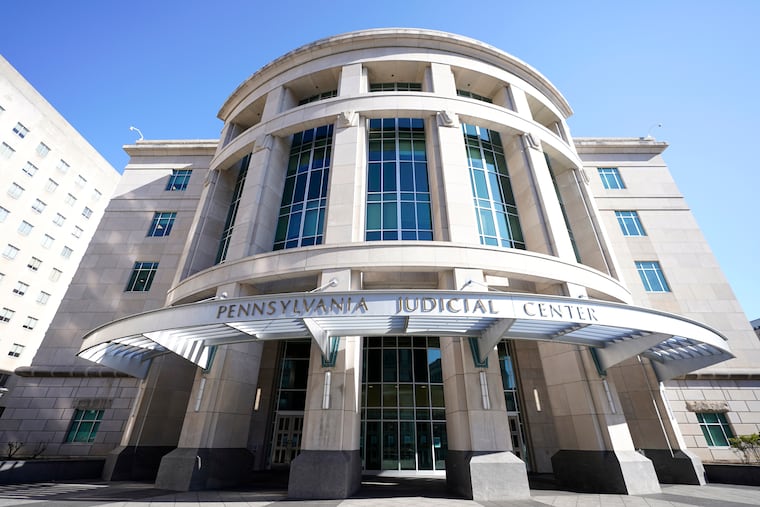Pa. is one of 18 states with an all-white state Supreme Court. This must change.
We can honor AAPI month by creating state courts that look more like the population.

Asian American Hollywood staples M. Night Shyamalan and Daniel Dae Kim, both of whom grew up in Eastern Pennsylvania, have recently spoken out about why representation is so critical for film and television. Representation provides a fuller, richer understanding of our neighbors and the world around us while also creating new role models for people from all walks of life. Without representation, we’re left with stereotypes, misunderstandings, and alienated audiences.
But the need for representation doesn’t end with your latest Netflix binge — not even close. Our doctors, law enforcement officials, politicians, and judges should all reflect the communities they represent or work in. On those fronts, and many others, we’re still falling short.
Take our commonwealth courts, for example. In Pennsylvania’s 236-year history, there have only been three people of color to ever sit on Pennsylvania’s highest court, and none of them were Asian American or Pacific Islander American. Of those three, Justice Robert N.C. Nix Jr., a Black man, was the only one to actually be elected to the court by voters, serving behind the bench for more than two decades. That regrettable record of representation on our highest court becomes even more damning when you consider that Pennsylvania is approximately 25% nonwhite.
Today, Pennsylvania is one of 18 states with an all-white state Supreme Court, according to a new analysis from the Brennan Center for Justice. Nationwide, people of color account for around 40% of the population, but justices of color make up just 20% of state Supreme Court seats. You don’t need a crystal ball to understand why this is such a concerning problem.
Our judicial system depends on trust, not politics, to function. Without trust, everything falls apart. Whether it’s a friendship, a relationship, or a visit to a local court, trust is built on connection. Pennsylvanians need to feel confident that a judge will consider their lived experiences and that they’re getting a fair shake.
As a Black woman and an activist battling for years for fair courts, I’ve seen with my own eyes just how crucial a highly qualified and representative judiciary is when it comes to building public confidence. There’s deep value in having your day in court and seeing your community reflected back at you. That kind of trust is what allows all Pennsylvanians to respect major rulings, even when we don’t fully agree with them.
Let’s not kid ourselves — state courts matter now more than ever. The U.S. Supreme Court and other federal courts continue to hand off debates about key rights and freedoms to the states. Our courts here in the commonwealth frequently have the final word on decisive matters like abortion, neighborhood safety, voting rights, civil protections, access to health care, education funding, workers’ protections, and the quality of our air and water. That means that the stakes in our courtrooms are way too high to not have a judiciary we can all believe in.
Every May during Asian American and Pacific Islander Heritage Month — and during all other heritage months — we’re asked to stop and consider how each vibrant part of our country combines to make a stronger, better whole. That acknowledgment, along with the resulting calls for representation, helps put us on a better path.
Progress is often slow, but it’s a process we can start now. Together, Pennsylvanians can work toward a future that promises equal justice for all by ensuring our state courts represent all the people in our great commonwealth.
Kadida Kenner is the founding CEO of the New Pennsylvania Project, a statewide voting rights organization with a primary focus on voter registration, and cochair of Why Courts Matter — Pennsylvania, a campaign educating Pennsylvanians about the importance of the independence of both the federal and state courts. She writes from Chester County.